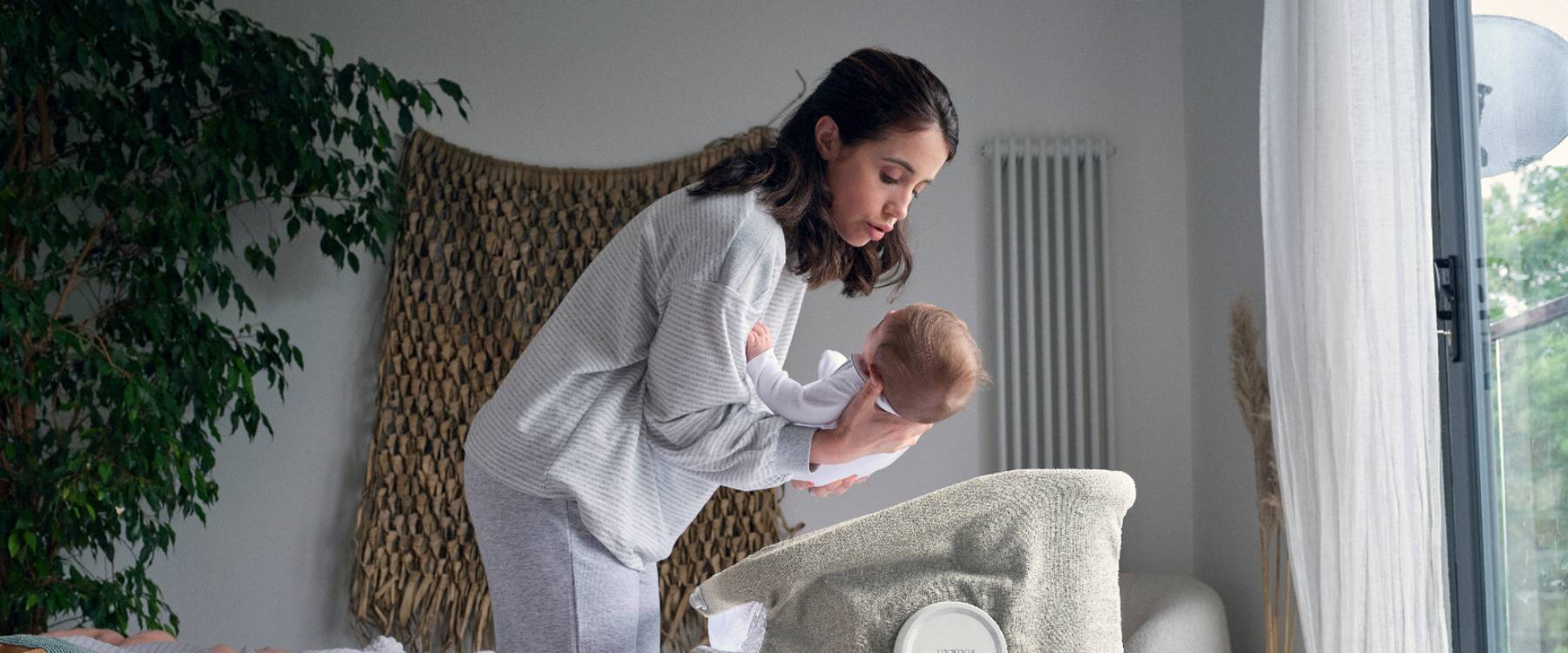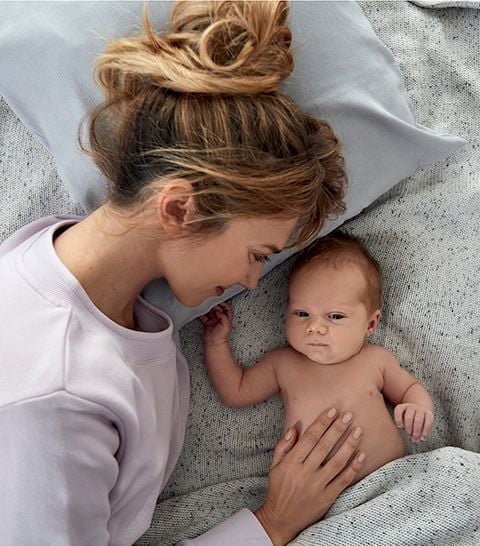
Why Do Babies Sleep Only When being Held?
Babies often seek the warmth, security, and comfort of being held close to their caregivers, especially during sleep. There are several reasons why your baby might resist sleeping independently:
- Need for Security: Babies find comfort in the familiar scent, touch, and heartbeat of their parents.
- Transition Difficulties: Moving from the snugness of your arms to a crib or bassinet can be unsettling for some babies.
- Developmental Stages: At certain developmental stages, such as growth spurts or teething, babies may seek extra reassurance from their caregivers.
- Learned Habit: If your baby is older than 10 weeks, then she might be habituated to sleep in your arms. Help her create new sleep habits with routines that teach her to self-sooth.

How to Get your Baby to Sleep without being Held?
Establish a Consistent Sleep Routine
Consistency is key when it comes to helping your baby learn healthy sleep habits. Establish a bedtime routine that signals to your baby that it's time to wind down and prepare for sleep. This might include activities like a warm bath, gentle massage, reading a book, and dimming the lights.
Create a Comfortable Sleep Environment
Ensure your baby's sleep environment is conducive to restful sleep. Invest in a quality crib or bassinet with a firm mattress and snug bedding. DockATot' SleepPod™ Collection offers a range of cozy and safe sleep solutions for your little one.
Gradual Independence
Help your baby gradually become accustomed to sleeping independently by practicing "drowsy but awake" techniques. Place your baby in their crib when they're drowsy but still awake, allowing them to learn to self-soothe and fall asleep on their own.

Implement Gentle Sleep Training Methods
Explore gentle sleep training methods like the Ferber method or the gradual retreat method. These techniques involve gradually reducing your presence and assistance during bedtime until your baby learns to fall asleep independently.
Seek Support from Partner or Family
Sharing the responsibilities of soothing and comforting your baby can provide much-needed relief for exhausted parents. Enlist the help of your partner or trusted family members to take turns comforting your baby during bedtime.
Stay Patient and Consistent
Remember, teaching your baby to sleep independently is a gradual process that requires patience and consistency. Be prepared for setbacks and be gentle with yourself and your baby throughout the journey.

Is It Safe for My Baby to Sleep in My Arms?
Many parents wonder about the safety of letting their baby sleep in their arms. While it's natural to want to keep your baby close, it's essential to consider safety guidelines. Sleeping with your baby in your arms, especially on soft surfaces like sofas or armchairs can increase the risk of accidental suffocation or Sudden Infant Death Syndrome (SIDS). However, brief periods of supervised sleep in your arms can be safe, especially if you're sitting in an upright position, and your baby is securely positioned with their head elevated and face clear of obstructions.
For longer periods of sleep, it's best to transition your baby to a safe sleep surface, such as a crib or bassinet, following the ABCs of safe sleep: Alone, on their Back, and in a Crib. This not only ensures their safety but also helps them establish healthy sleep habits conducive to long-term restful sleep.
In conclusion, coping with a baby who refuses to sleep unless held can be challenging, but it's a phase that can be managed with patience, consistency, and the right strategies. By understanding the reasons behind your baby's behavior and implementing practical tips, you can help your little one develop healthy sleep habits and enjoy more restful nights for the whole family. Remember, at Mamas & Papas, we're here to support you every step of the way with our range of sleep solutions and parenting essentials. Sweet dreams!
- For more tips on newborn sleep, check out our blog posts on Baby Sleep.
- Browse our selection of Baby Sleep Products for everything you need to create a calm and relaxing environment for your little one.




